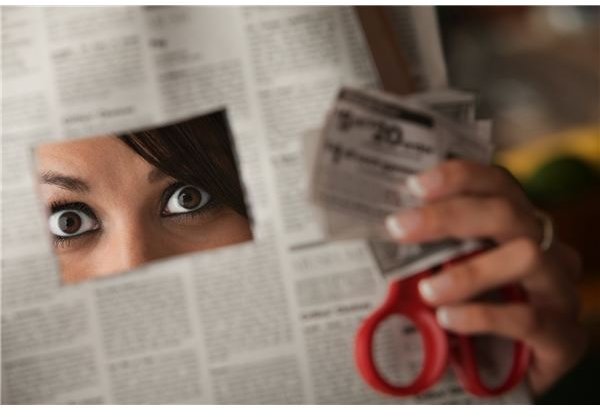Extreme Frugality: Is it Healthy? Know the Signs of an Unhealthy Relationship to Money
There’s nothing quite like the feeling of seeing your grocery bill trickle lower as the cashier swipes coupon after coupon. It’s a good feeling that comes from wise shopping. It’s even better when you get an item you want and need for free, all because you had a coupon and used it at the right time. Yet, some people go further - much further. Extreme frugality isn’t just a way of living, but it can push people so far that health and well being become factors.
What Most People Do
There’s little doubt that many people benefit from frugality. Some take it on as a way to survive unemployment or to get out from under piles of debt. Some use this as a tool to saving for a big expense or investment down the road. Yet, there is a point where this goes further and puts individuals at risk. Individuals who are living a healthy frugal lifestyle can still make wise decisions about spending money when necessary.
When It Goes Too Far
Is it possible to get too frugal, though? Can you go too far in your unwillingness to spend money (whether it is in the bank or not?) Some experts say yes. According to the International OCD Foundation, extreme frugality without reason, hoarding behaviors, and excessive fixation in these areas is a type of disorder. It can even be classified as obsessive compulsive disorder. This type of money disorder can put people at risk, and that is where the fine line is crossed.
What Behaviors Are Not Healthy?
Though pinching pennies and having a stockpile of toilet paper may not seem like bad things, the extreme level of frugality can be worrisome.
- Individuals who refuse to spend money to buy food, for example, and eat foods from the garbage, are putting their health at risk.
- Individuals stockpiling goods at home so much so that it interferes with healthy living conditions, are pushing the limits.
- Those neglecting the investment in necessities for healthy living, such as calling a repair person to fix a leak or visiting the dentist, are at the limit.
- Individuals who focus most days on worrying about money, even though they have minimal amounts of debt and savings, are not engaging in a healthy relationship with money.
- Taking advantage of other people to save money is also a sign of trouble.
What ensures a healthy relationship with money? In short, a healthy relationship occurs when the individual can make investments as needed to ensure a healthy lifestyle. Establishing savings goals, working to make wise investments, and clipping coupons are all good things, when they do not become the daily focus of a person’s life. Ultimately, extreme frugality is a type of disorder, but one that can be repaired through proper attention and medical help. Living in a world where money is the only focus and personal relationships suffer is not the ideal scenario.
